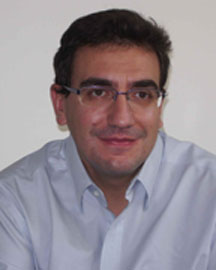On the Use of Quickest Detection Theory for GNSS Signal Integrity Monitoring in the Presence of Receiver Local Effects

Speaker: Gonzalo Seco-Granados
Affiliation: Assoc. Prof. Universitat Autònoma de Barcelona
Abstract:
In urban environments, GNSS signals suffer from local effects such as multipath, non-line-of-sight (NLOS) propagation, interference, etc. GNSS integrity at observable level is a mature topic, but at signal level, it is an emerging area of research. The goal is to design detectors or confidence metrics that monitor the shape or other features of the received signal, and thus they are able to identify when the signal departs from its nominal characteristics, and then to infer the presence of local effects. Hypothesis testing algorithms have been traditionally applied in this context, which are characterized by their probabilities of detection and false alarm, but they omit an explicit treatment of time. Given that in most of the safety- or liability-critical applications (e.g. autonomous cars or toll-per-use, respectively), the most relevant parameters are time-to-detection and time-to-false-alarm, the theory of change detection offers an interesting framework for GNSS integrity. In the talk, we will provide a simple overview of some fundamental aspects of change detection, we will illustrate how it can be applied in GNSS receivers, and we will describe the application to signal integrity. Finally, we present numerical results obtained with real life signals, assessing the performance of the proposed methodology.
Biography:
Prof. Gonzalo Seco-Granados received the Ph.D. degree on Telecommunications Engineering from Universitat Politècnica de Catalunya in 2000 and an MBA from IESE in 2002. From 2002 to 2005, he was member of the technical staff of the European Space Agency (ESA) in The Netherlands. Since 2006, he has been Associate Professor at the Department of Telecommunications and Systems Engineering, Universitat Autònoma de Barcelona. He has been coordinator of the Telecommunications Engineering degree (2007-2011) and vice-director of School of Engineering (2011-present). He coordinates the SPCOMNAV group, dedicated to the research on signal processing mainly applied to wireless communications and positioning systems. Gonzalo Seco-Granados has authored over 180 technical papers and has been principal investigator of over 25 research projects. He has received twice the best presentation award at ION GNSS. He has contributed with seminal work in the topic of antenna arrays for GNSS. He served as Guest Editor for the IEEE Signal Processing Magazine (special issue on Signal Processing for Positioning and Navigation with Applications to Communication). He has held several visiting appointments at Universidad de Vigo (Spain), Brigham Young University (USA), and University of California in Irvine (USA), the latest one in 2015 as Fulbright Professor. His research interests include the design of signals and receiving techniques for satellite-based and wireless terrestrial (mainly based on the evolution of cellular systems) positioning systems. He is General Co-Chair of the ICL-GNSS 2016 and Executive Co-Chair of the ASMS/SPSC 2016 conferences.
For more information, contact Prof. Danijela Cabric (danijela@ee.ucla.edu)
Date/Time:
Date(s) - Nov 19, 2015
1:00 pm - 2:00 pm
Location:
E-IV Tesla Room #53-125
420 Westwood Plaza - 5th Flr., Los Angeles CA 90095
